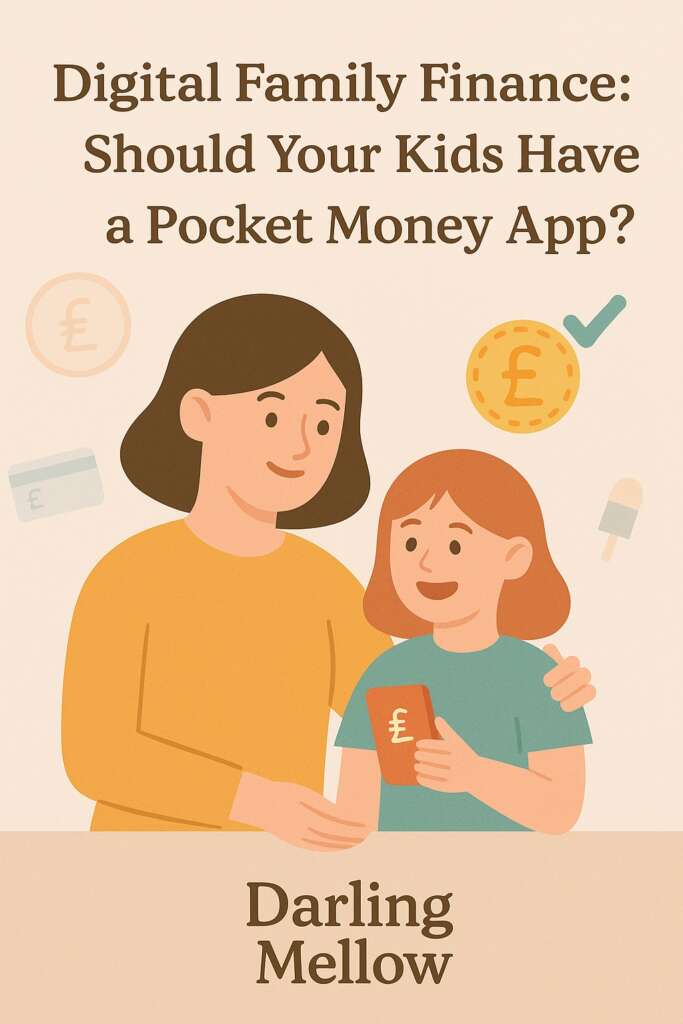Digital Family Finance: Should Your Kids Have a Pocket Money App?
Helping your child learn to manage money starts with simple choices. The tools we choose matter. But how we use them matters even more.
What Is a Pocket Money App?
A pocket money app lets you give your child regular spending money through a digital platform. These apps often include features like saving goals, chore tracking, spending categories, and linked debit cards. Popular names in the UK include GoHenry, RoosterMoney, and Starling Kite.
💡 What These Apps Can Offer
- Visual saving jars for goals like toys, books, or birthdays
- Instant transfers from parent to child
- Spending limits and merchant restrictions
- Chore tracking and reward automation
- Learning modules about money values
When Is a Child Ready for a Money App?
This depends more on emotional maturity than on age. If your child understands the basics of saving, wants more independence, or needs help learning self-control with money, an app can help. But it is not a magic solution. It is a tool that needs guidance, trust, and conversation.
📱 Signs Your Child Might Be Ready
- They understand the difference between needs and wants
- They are asking for more responsibility
- They already have access to tech and want to learn money skills
- They are struggling with impulse spending or saving
- You want to move away from cash and toward safer tracking
Pros and Cons of Pocket Money Apps
These apps are a brilliant way to teach real-world skills in a safe environment. But they are not without challenges. Just like screen time or gaming, money tools can either support emotional growth or fuel disconnection. What matters is how we use them.
⚖️ A Balanced Look
- Pro: Encourages independent decision-making
- Pro: Safer than carrying cash
- Pro: Built-in parental controls
- Con: Monthly fees or subscription costs
- Con: Can feel transactional if not discussed
- Con: Adds another digital layer to family life
How to Introduce One Gently
If you decide to use a money app, introduce it through shared learning. Let your child explore it with you. Set joint goals. Talk about why money matters and how it connects to your family values. Use real examples. Make it feel like empowerment, not control.
🪴 Gentle Ways to Start
- Make a savings goal together and track progress weekly
- Use shopping trips to practise spending and reflection
- Give space for mistakes and talk about them calmly
- Involve your child in choosing the app or card design
Do You Need One at All?
No. You do not need a pocket money app to raise a financially confident child. The best money lessons come from regular, connected conversation. What these tools can do is make that process easier to manage in modern family life. They are optional. Not essential. You are the guide. The tool is just that — a tool.
💌 Want More Like This?
Join the Darling Mellow newsletter for soft, savvy parenting tools — from money chats to printable rituals — delivered weekly with heart.


